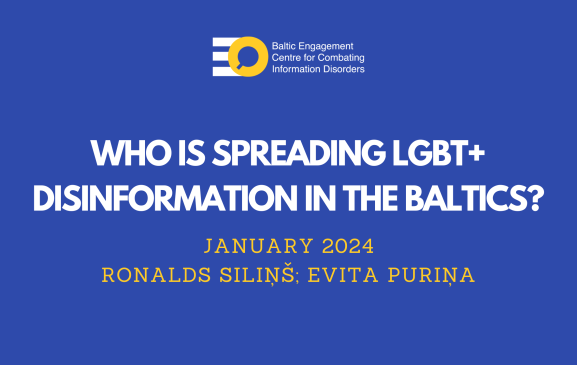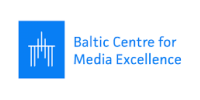Results and Studies
-
THE REGULATION OF FACT-CHECKING AND DISINFORMATION IN THE BALTIC STATES
11.06.2024 D3.4 OF THE EU-FUNDED PROJECT WITH THE ID 118471, COORDINATED BY THE UNIVERSITY OF TARTU
-
OLD CARS, IMMIGRANTS AND WAR – HOW EU RELATED MISINFORMATION IS SPREAD IN THE BALTICS?
07.06.2024 Part of D2.5 of the EU-funded project with the ID 118471, coordinated by the University
-
Recommended Code of Conductand Ethics & Common Principlesfor Researching and MonitoringFact-checking
07.06.2024 Deliverable 3.5 for the EU-funded project with the ID 118471, coordinated by the University of
-
Intergenerational training to improve the digital competence of young people and the elderly
30.05.2024 Deliverable 4.3 for the project with the ID 118471, coordinated by the University of Tartu
-
When pro-Kremlin bots start speaking Latvian (March 2024)
25.03.2024 When pro-Kremlin bots start speaking Latvian March 2024Inga Spriņģe (Re:Baltica)Part of D2.5 of the EU-funded
-
Report: Communication and Dissemination Activities 2023
09.02.2024 Inger Klesment
-
Conceptual and methodological approaches in societal resilience research (2024)
05.02.2024 Conceptual and methodological approaches in societal resilience research2024Kristina Juraitė, Dmytro Iarovyi, Sten Torpan, Ragne Kõuts-Klemm
-
Teaching Media Literacy At School As An Interdisciplinary Objective (2024)
05.02.2024 Teaching Media Literacy At School As An Interdisciplinary Objective2024Andres Kõnno | Senior Researcher, TLUKülli-Riin Tigasson
-
Mitigating (Dis)information Vulnerability With Situational Risk Awareness And HumanCentered Approaches: A Conceptual Model (2023)
05.02.2024 Mitigating (Dis)information Vulnerability With Situational Risk Awareness And HumanCentered Approaches: A Conceptual Model2023Auksė Balčytienė |
-

Who Is Spreading LGBT+ Disinformation in the Baltics? (January 2024)
05.02.2024 Who Is Spreading LGBT+ Disinformation in the Baltics?January 2024Ronalds Siliņš (Re:Baltica), Evita Puriņa (Re:Baltica)Part of
-

BECID Year 1 Report (December 2022-December 2023)
05.02.2024 BECID Year 1 ReportDecember 2022-December 2023Maia Klaassen | Coordinator and Junior Research FellowInger Klesment |
-
The Latest Stories From Troll Farms: Nato Serving Latvia And The Benefits Of Authoritarianism (November 2023)
05.02.2024 The Latest Stories from Troll Farms: NATO Serving Latvia and the Benefits of AuthoritarianismNovember 2023Mārcis
-
Pants on fire: how climate misinformation is spread in the Baltic states? (October 2023)
05.02.2024 Pants on fire: how climate misinformation is spread in the Baltic states?October 2023Ronalds Siliņš (Re:Baltica)Part
-
Step By Step: How Russian Propaganda ‘Explains’ Events in Latvia (July 2023)
05.02.2024 Step By Step: How Russian Propaganda ‘Explains’ Events in LatviaJuly 2023Mārcis Balodis (Delfi LV)Part of
-
Disinformation trends in Baltics: War in Ukraine, NATO presence and controversy over edible insects (July 2023)
05.02.2024 Disinformation trends in the Baltics: war in Ukraine, NATO presence and controversy over edible insectsJuly
-
Kremlin’s propaganda in our pockets. How disinformation thrives on Telegram. (July 2023)
05.02.2024 Kremlin’s propaganda in our pockets. How disinformation thrives on Telegram.July 2023Anastasija Tetarenko-Supe (Re:Baltica)Part of D2.5
-
Step by step: what arguments is Russia using this year to mislead the Baltics? (March 2023)
05.02.2024 Step by step: what arguments is Russia using this year to mislead the Baltics?March 2023Mārcis
-
Is TikTok a Gateway to Politics in the Baltics? For Now, Only in Latvia (February 2023)
05.02.2024 Is TikTok a Gateway to Politics in the Baltics? For Now, Only in LatviaFebruary 2023Authors:





